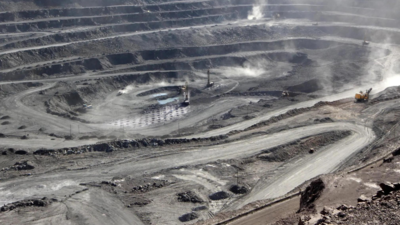India is actively engaging with China to ensure stability and predictability in trade-related supply chains, following Beijing’s recent curbs on rare earth exports that have disrupted the global automotive sector.“We are in touch with the Chinese side, both here in Delhi as also in Beijing, to bring predictability in supply chain for trade, consistent with international practices,” External affairs ministry spokesperson Randhir Jaiswal said at a press briefing on Thursday.China’s export restrictions on key rare earth materials have caused concern among automakers worldwide. Maruti Suzuki, India’s largest carmaker, has scaled back near-term production targets for its first electric vehicle due to raw material shortages, Reuters reported earlier this week.The company aimed to produce just 8,000 units by September—down sharply from the originally planned 26,000+ units.The shortfall followed China’s move to tighten export restrictions on key rare earth elements and magnets—materials essential for electric vehicle motors. Since April 4, Beijing mandated special licences for exporting seven types of rare earths, including samarium, gadolinium, terbium, dysprosium, and lutetium. These materials played a vital role in EV propulsion systems and other high-tech applications such as missiles and defense electronics.“As of now, there is no impact on production,” Maruti Suzuki Chairman R.C. Bhargava said earlier this week. However, supply-side risks remained, as China controlled over 90% of global processing capacity for these crucial materials.Meanwhile, Several Indian automakers sought government intervention to expedite approvals from Chinese authorities through local vendors for importing rare earth magnets. However, no licences had been granted, resulting in growing uncertainty across the EV and hybrid vehicle manufacturing sectors.Rare earth magnets are critical components in permanent magnet synchronous motors (PMSMs), which are used in EVs for their high torque, efficiency, and compact design. While internal combustion engine vehicles used them more sparingly—such as in electric power steering—their importance in electrified powertrains was substantial.
Trending
- Early investor Banga to sell 2% in Nykaa
- Tyre exports hit record high of 25k cr in FY25 | India News
- Zero tariffs for US: Donald Trump announces trade deal with Vietnam; latter subjected to 20% duty
- Tesla EV sales plunge! 13% drop in three months; anti-Elon Musk sentiment harms
- Where are silver prices headed? Rich Dad Poor Dad author sees ‘explosion’ in July; here’s the outlook
- Prada Kolhapuri ‘scandal’: How the controversy sparked a big surge sales of this Indian sandal; centuries-old craft sees boost
- RBI floating rates savings bonds: Interest rate at 8.5% for July-December 2025; here’s what you should know
- What is Donald Trump’s net worth? Billionaire US President has a big portfolio of cryptocurrencies, stocks & more – top details
- Whopping $82.3 billion cost? Donald Trump’s tariffs may hit US employers in a big way, says JPMorganChase Institute analysis
- Kuwait’s e-permit exit rule: Expat workers need employer’s nod to fly out; how to obtain it?

